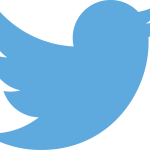 People watching TV and writing about it online with their friends at the same time?!. Breathless buzz buzz buzz buzz buzz!!!
People watching TV and writing about it online with their friends at the same time?!. Breathless buzz buzz buzz buzz buzz!!!
Am I talking about the Super Bowl last weekend, and so many people live tweeting it? Or the last episode of 30 Rock last week? Or the Olympics last year?
No – I’m talking about something that’s been happening for at least 30 years.
I’m talking about Usenet, a worldwide Internet discussion system that started in the early 1980s. Usenet was not only the initial Internet community – in the 1980s and 1990s, it was THE place for many of the most important public developments in the commercial/public Internet: it’s where Tim Berners-Lee announced the launch of the World Wide Web, where Linus Torvalds announced the Linux project, and where the creation of the Mosaic web browser was announced (and which revolutionized the Web by turning it into a graphical medium, rather than just text-based).
It was also the place where there were discussion groups – called newsgroups – for everything imaginable: volunteer firefighting, accounting, classic cars, computer repair, tent camping, hiking with your dog, nonprofit management, college football teams – and, indeed, television shows.
Yes, as early as the 1980s, many thousands of people all over the USA were gathering online with friends to talk in realtime about what they were watching on TV. While I didn’t write online during the X-Files in the 1990s, I fully admit to running to my computer as soon as an episode was over, to read what everyone thought and to share my own reactions. Usenet TV and entertainment-related communities fascinated me so much at the time that I ended up writing about them at my day job: about how members of the online communities for the X-Files, Xena, and other entertainment-focused newsgroups engaged in online volunteering & various charitable activities. That was in 1999.
There’s nothing really new about people live tweeting what they are seeing on TV, except that more people are doing it than were on newsgroups and that it’s being done on Twitter now.
And I bring this up because I keep finding articles and research that claims online volunteering or microvolunteering is new. It’s not. Helping people via the Internet, in ways large and small, is a practice that’s more than 30 years old, and just-show-up volunteering without a long-term commitment, which until recently was called episodic volunteering (and I called online versions of it byte-sized volunteering back in the 1990s) has also been around for decades.
We’re not in uncharted territory regarding volunteering or any human interaction online – so let’s embrace our past, learn from it, and give the true innovators, the real pioneers, their due! Rebranding practices and approaches is fine, but let’s not deny our past in the process – there are some great learnings from back in the day that could really help us not so make many missteps online now!
Also see:
- Early History of Nonprofits & the Internet
This page highlights milestones in the early history of nonprofits and the Internet. It focuses on 1995 and previous years. It talks a little about what nonprofits were using the cyberspace for as well at that time and lists the names of key people and organizations who helped get nonprofit organizations using the Internet in substantial numbers in 1995 and before. Edits and additions are welcomed. - Microvolunteering and Crowd-Sourcing: Not-So-New Trends in Virtual Volunteering/Online Volunteering
- Microvolunteering is virtual volunteering

